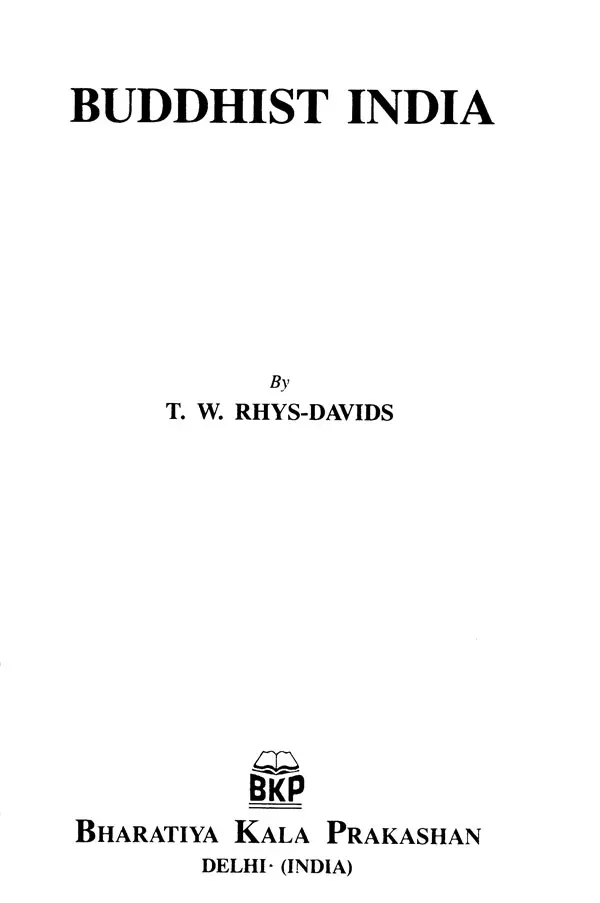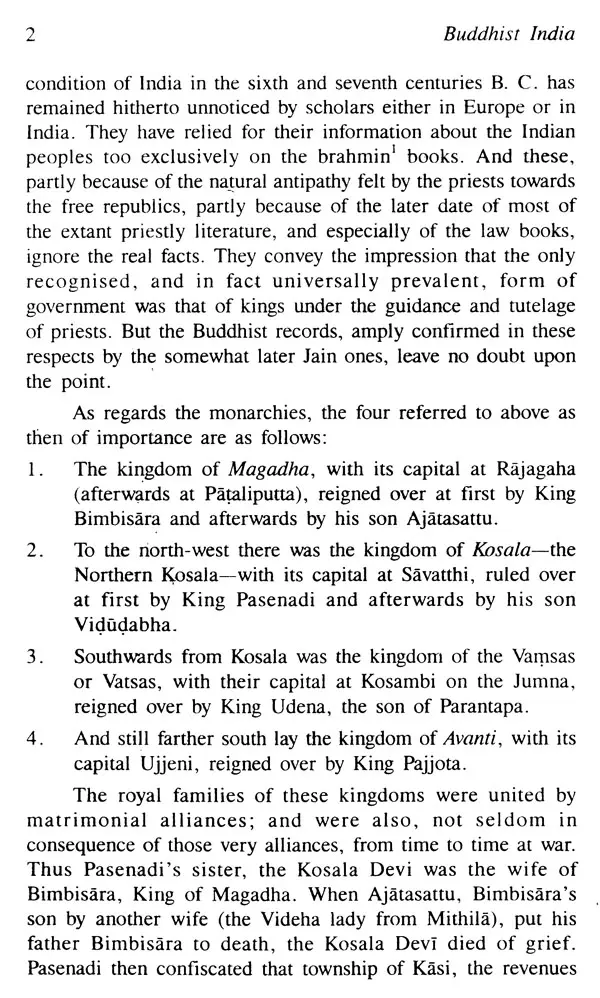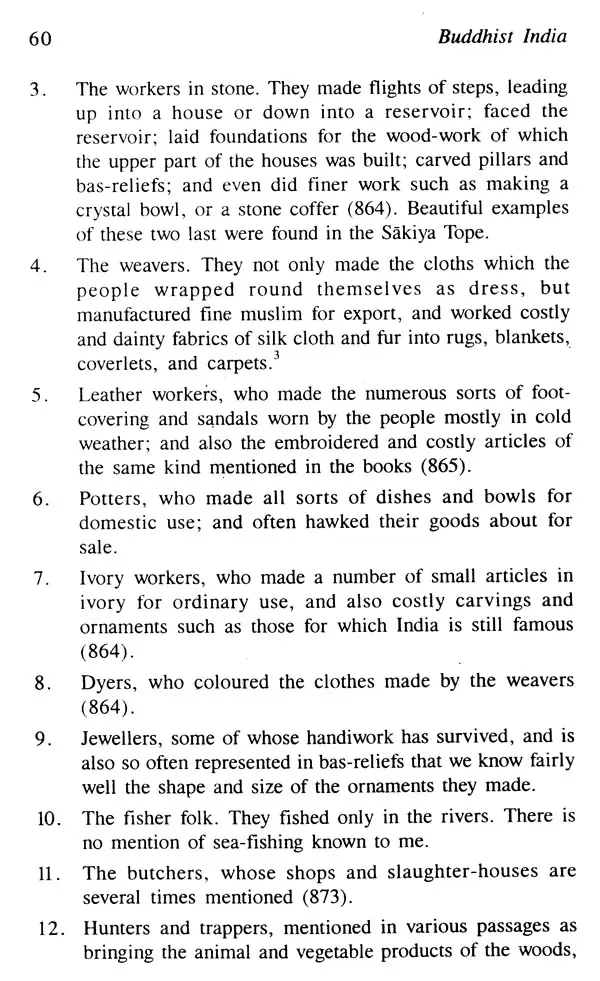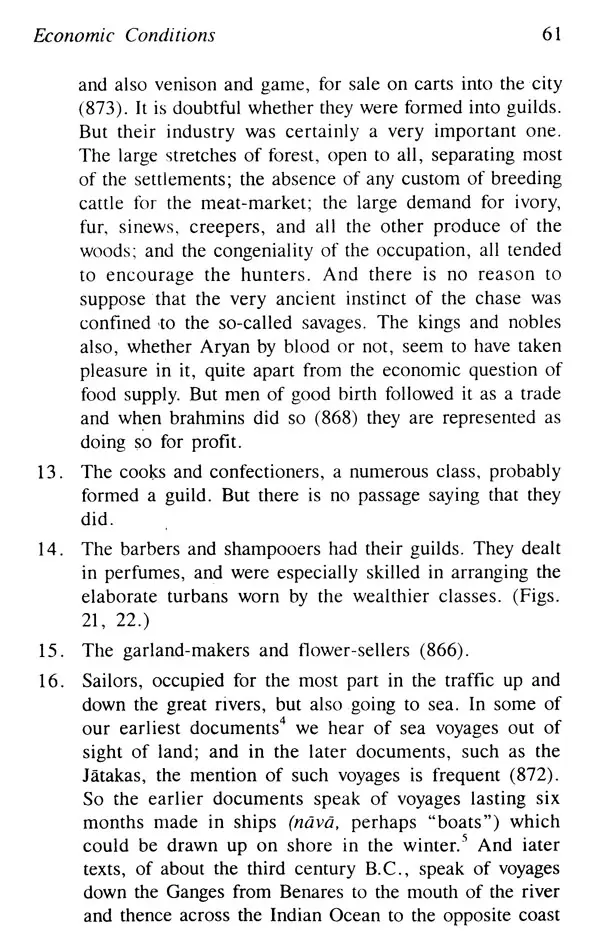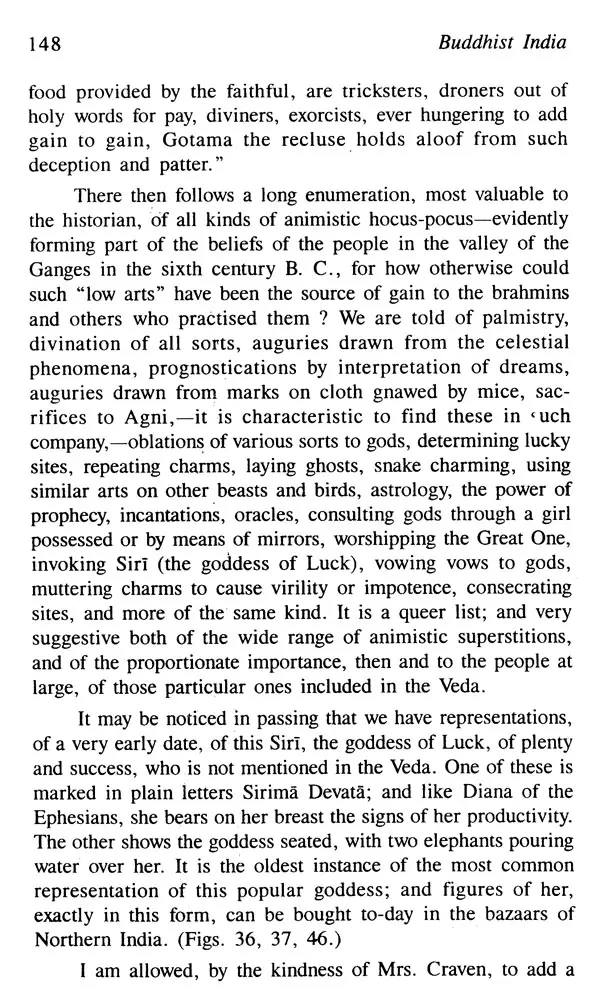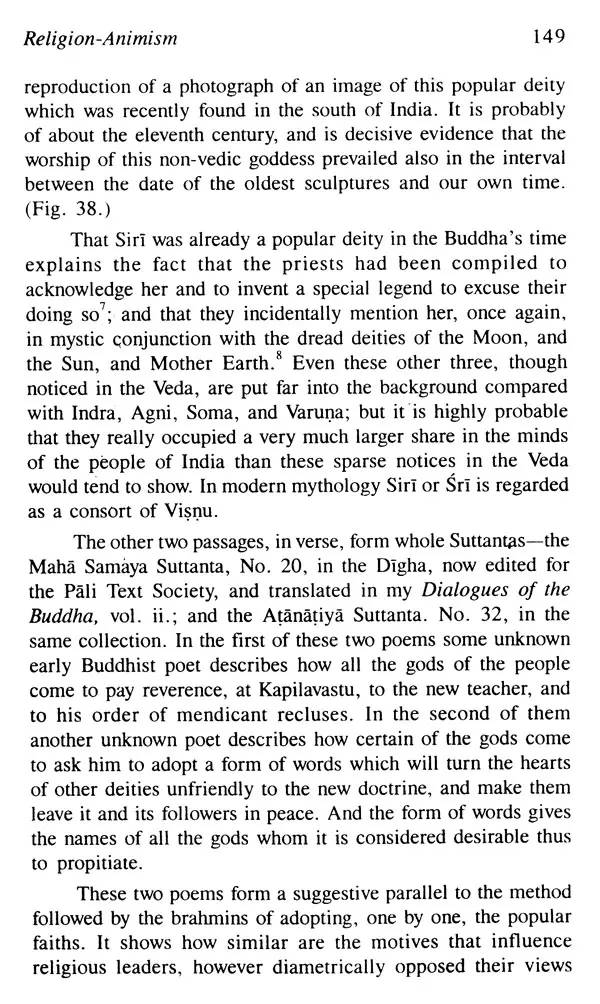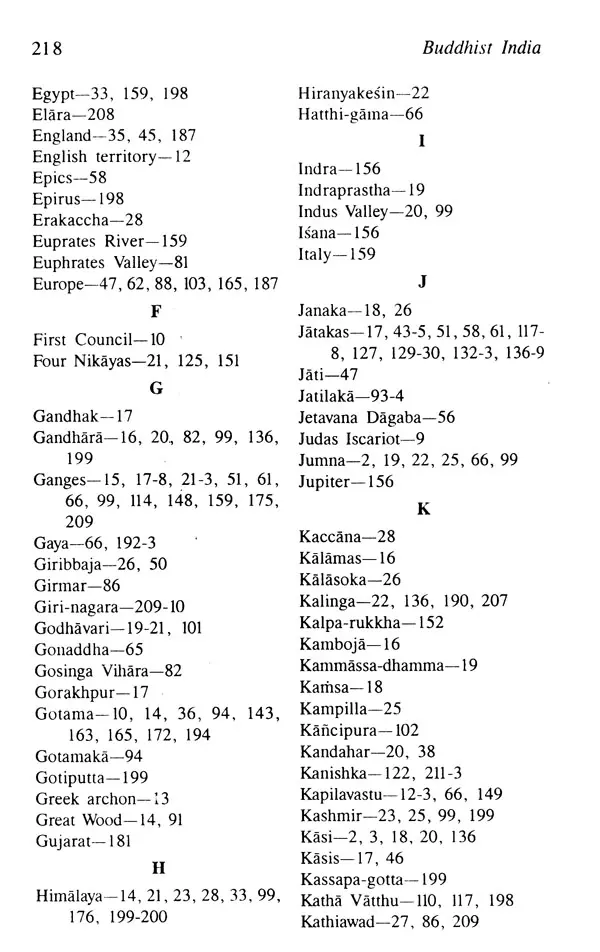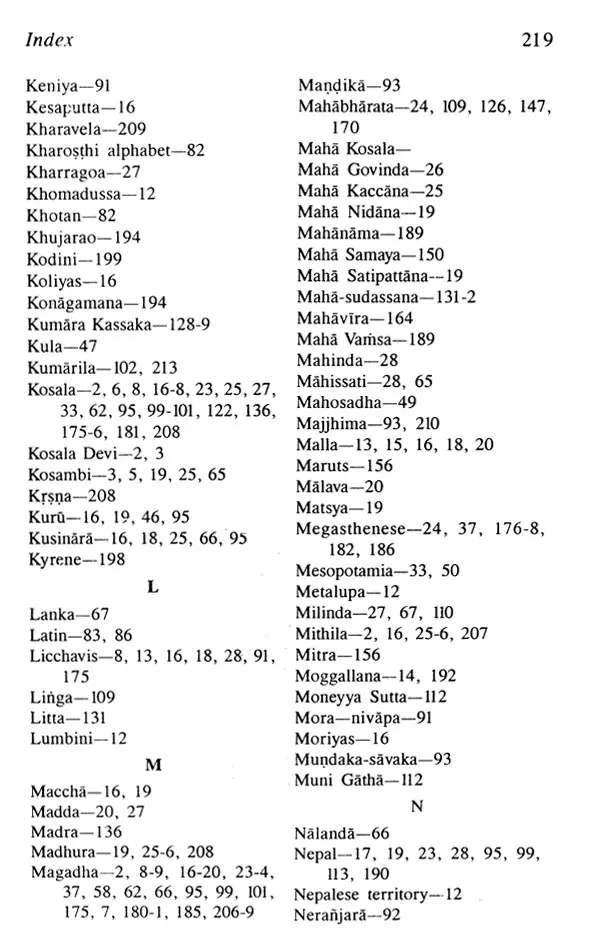
Buddhist India
Book Specification
| Item Code: | UAP538 |
| Author: | T.W. Rhys Davids |
| Publisher: | Bharatiya Kala Prakashan |
| Language: | English |
| Edition: | 2007 |
| ISBN: | 9788180901607 |
| Pages: | 228 |
| Cover: | HARDCOVER |
| Other Details | 9.00 X 6.00 inch |
| Weight | 430 gm |
Book Description
An attempt to reconstruct a picture of the economic conditions of that time has also been made. The writings of the Buddha's conversational discourses on the Stlas, the development of the writ ing such as writing on copper plates, etc. were also given emphasis.
Language and Literature, like Pali books, Nikayas, the Jätaka book, Vinaya have also been discussed.
The Religion and the position of the brahmins were also find proper place in the book. And, Buddhism under Chandragupta, Asoka and Kanishka give proper place in the book.
Instead of principles of Buddhism, development of its with different circum stances and fulfil the purpose very well.
Even to make this attempt at all may be regarded by some as a kind of lêse majesté. The brahmin view, in possession of the field when Europeans entered India, has been regarded so long with reverence among us that it seems almost an impertinence now, to put forward the other. "Why not leave well alone? Why resuscitate from the well-deserved oblivion in which, for so many centuries, they have happily lain, the pestilent views of these tiresome people? The puzzles of Indian history have been solved by respectable men in Manu and the Great Bharata, which have the advantage of being equally true for five centuries before Christ and five centuries after. Shade of Kumarila! what are we coming to when the writings of these fellows renegade brahmins among them too-are actually taken seriously, and mentioned without a sneer?
**Contents and Sample Pages**
